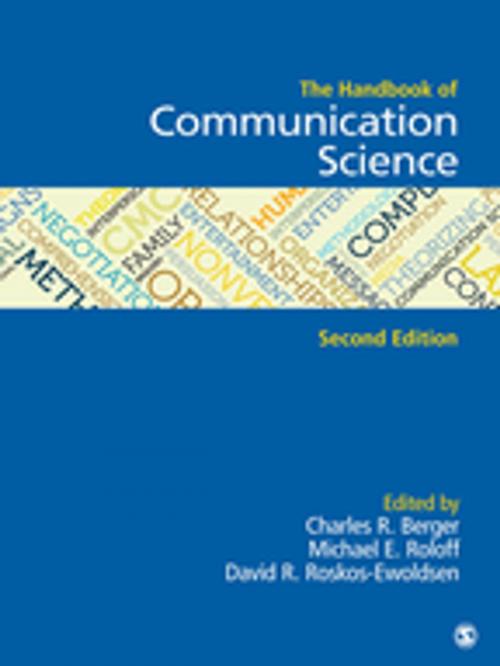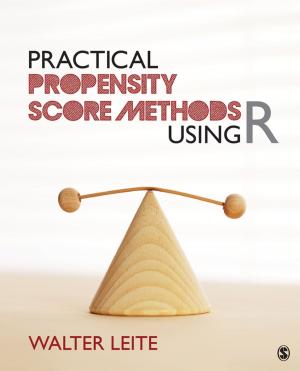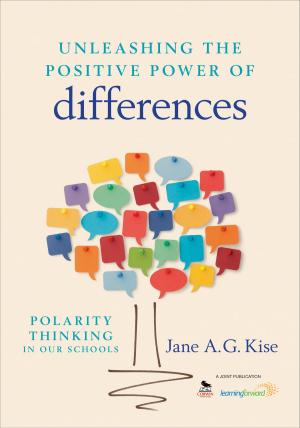The Handbook of Communication Science
Nonfiction, Reference & Language, Language Arts, Communication, Reference| Author: | David R. Ewoldsen, Charles R. Berger, Michael E. Roloff | ISBN: | 9781483342603 |
| Publisher: | SAGE Publications | Publication: | April 30, 2009 |
| Imprint: | SAGE Publications, Inc | Language: | English |
| Author: | David R. Ewoldsen, Charles R. Berger, Michael E. Roloff |
| ISBN: | 9781483342603 |
| Publisher: | SAGE Publications |
| Publication: | April 30, 2009 |
| Imprint: | SAGE Publications, Inc |
| Language: | English |
This revision of a classic volume presents state-of-the-art reviews of established and emerging areas of communication science and provides an intellectual compass that points the way to future theorizing about communication processes.
In this Second Edition of The Handbook of Communication Science, editors Charles R. Berger, Michael E. Roloff, and David Roskos-Ewoldsen bring together an impressive array of communication scholars to explore and synthesize the varying perspectives and approaches within the dynamic field of communication science. After first addressing the methods of research and the history of the field, the Handbook then examines the levels of analysis in communication (individual to macro-social), the functions of communication (such as socialization and persuasion), and the contexts in which communication occurs (such as couples, families, organizations, and mass media).
Key Features:
- Draws on the scholarship and expertise of leading communication scholars who explore different aspects of the field
- Covers all facets of communication science, from the historical and theoretical to the practical and applied
- Covers the latest theoretical developments in the field, as well as alternative methodologies and levels of analysis
- Explores key communication contexts of the 21st century, including interpersonal dimensions of health communication, the scientific investigation of marital and family communication, and computer-mediated communication
- Includes incisive analyses, literature reviews, bibliographies, and suggestions for future research
The Handbook of Communication Science, Second Edition, is an essential reference resource for scholars, practitioners, and students. It is appropriate for upper-level undergraduate or graduate courses in Communication and Media Studies and Mass Communication.
This revision of a classic volume presents state-of-the-art reviews of established and emerging areas of communication science and provides an intellectual compass that points the way to future theorizing about communication processes.
In this Second Edition of The Handbook of Communication Science, editors Charles R. Berger, Michael E. Roloff, and David Roskos-Ewoldsen bring together an impressive array of communication scholars to explore and synthesize the varying perspectives and approaches within the dynamic field of communication science. After first addressing the methods of research and the history of the field, the Handbook then examines the levels of analysis in communication (individual to macro-social), the functions of communication (such as socialization and persuasion), and the contexts in which communication occurs (such as couples, families, organizations, and mass media).
Key Features:
- Draws on the scholarship and expertise of leading communication scholars who explore different aspects of the field
- Covers all facets of communication science, from the historical and theoretical to the practical and applied
- Covers the latest theoretical developments in the field, as well as alternative methodologies and levels of analysis
- Explores key communication contexts of the 21st century, including interpersonal dimensions of health communication, the scientific investigation of marital and family communication, and computer-mediated communication
- Includes incisive analyses, literature reviews, bibliographies, and suggestions for future research
The Handbook of Communication Science, Second Edition, is an essential reference resource for scholars, practitioners, and students. It is appropriate for upper-level undergraduate or graduate courses in Communication and Media Studies and Mass Communication.















